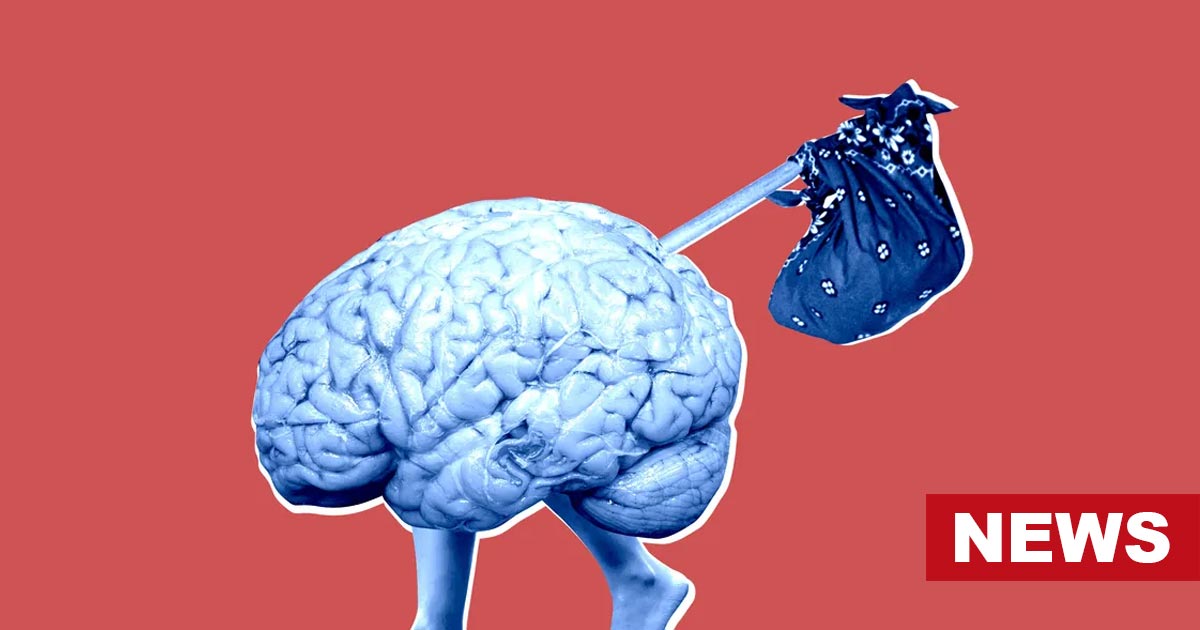- Research reveals that wandering thoughts can reveal your mental health conditions.
- Depression and mind-wandering often go hand in hand, with repetitive negative thoughts fueling unhappiness and dissatisfaction.
Wandering Thoughts Can Reveal Your Mental Health
In the realm of mental health, the intricate workings of the human mind have been a subject of great interest. Wandering thoughts, often characterized by a lack of focus and a tendency to drift aimlessly, have garnered attention for their potential insights into our mental well-being.
Mind wandering or free thinking is largely associated with sound mental health. People can reap its benefits related to problem-solving, enhanced creativity, mindfulness, and meaningful life.
This can enable people to enjoy better cognitive abilities and mental health in the modern era of information overload and constant distractions. However, recent research contrarily claims that negative mind-wandering is a key symptom in people with mental health conditions like anxiety, depression, etc.
Depression, Mind Wandering, And Rumination
Research has shown a strong link between depression and mind-wandering, particularly in the form of repetitive and negative thoughts.
People with depression frequently experience a higher frequency of intrusive, self-focused thoughts that center around themes of worry, rumination, and self-criticism. In fact, experts claim that as little as 10 minutes of idle time can spur rumination and amplify negative emotions in people with poor mental health.
These thought patterns often perpetuate a cycle of negative emotions and contribute to the persistence of depressive symptoms. Additionally, individuals with depression tend to exhibit impaired cognitive control, making it more challenging to redirect their attention away from these negative thought patterns.
How Mind-Wandering Causes Our Unhappiness
While the mind’s ability to wander can be a natural and adaptive function, excessive and uncontrolled mind-wandering can have detrimental effects on our well-being. Studies have found that individuals who frequently engage in mind-wandering are generally less happy and more prone to experiencing negative emotions.
This unhappiness stems from several factors associated with mind-wandering, including increased self-referential processing, repetitive negative thoughts, and reduced engagement with the present moment.
When our thoughts wander, we often ruminate on past events or worry about future outcomes, neglecting the present moment. This preoccupation with the past or future can lead to increased anxiety, stress, and a sense of discontentment.
Moreover, repetitive negative thoughts during mind-wandering can reinforce negative self-perceptions and amplify feelings of sadness and hopelessness.
Ways To Control Unwanted Thoughts With Mindfulness
Mindfulness, the practice of purposefully directing attention to the present moment without judgment, has emerged as a powerful tool for managing wandering thoughts and promoting mental well-being. By cultivating mindfulness, individuals can gain greater control over their thoughts and reduce the impact of unwanted rumination and mind-wandering.
One of the fundamental principles of mindfulness is developing awareness of one’s thoughts and emotions. By observing thoughts without judgment, individuals can detach from the content of their wandering thoughts and prevent them from dictating their emotional state.
Through regular mindfulness practice, individuals can become more attuned to their thought patterns, identifying negative or unhelpful thoughts that contribute to mental distress.
In addition to formal mindfulness practices (like focused breathing exercises or body scans), integrating mindfulness into daily activities can also be beneficial. Engaging in tasks mindfully (such as savoring the taste of food or fully immersing oneself in the present moment during a walk) can help individuals stay present in the moment and break free from the cycle of rumination and negative thinking.
This approach will not only reduce mind-wandering tendencies, but also lessen the risk of mental health disorders like depression or chronic anxiety.
Melissa Shepard, a psychiatrist based in Charlotte, North Carolina, told Psych Central: “The more we can stay in the present moment, the more we can avoid rumination. When we focus on the past, we often focus on negative things that occurred or what we wish had been different. Feelings of regret and helplessness can make us feel like we have less control over what happens in the present, which can contribute to depression.”
Know More About –
Related Articles –
- How Rigid Thinking And Rumination Undermines Your Health And Life
- Overthinking Before Sleep? 8 Ways To Avoid Racing Thoughts At Night And Sleep Better
- 5 Tips To Help Get Rid Of Negative Thoughts






















